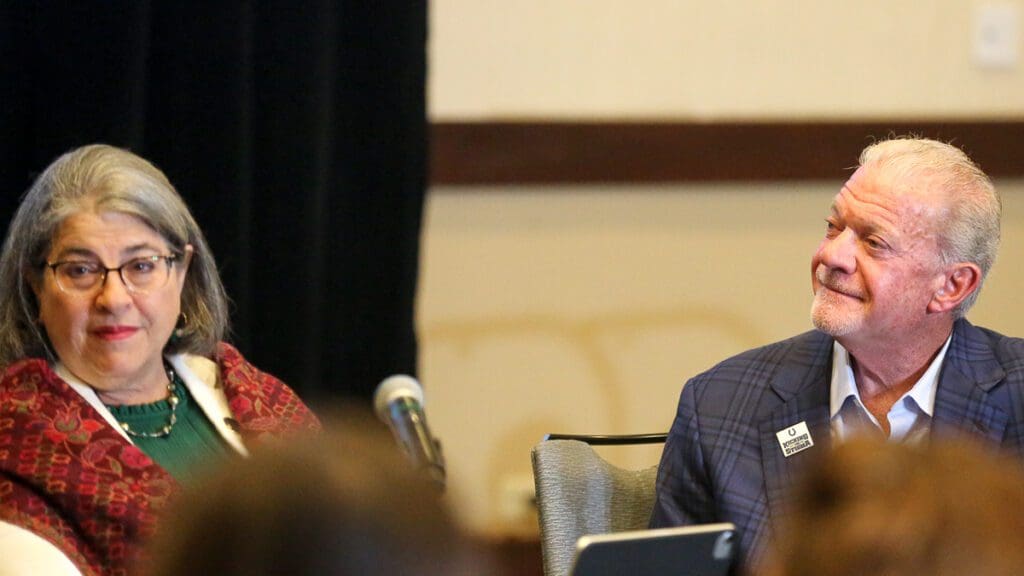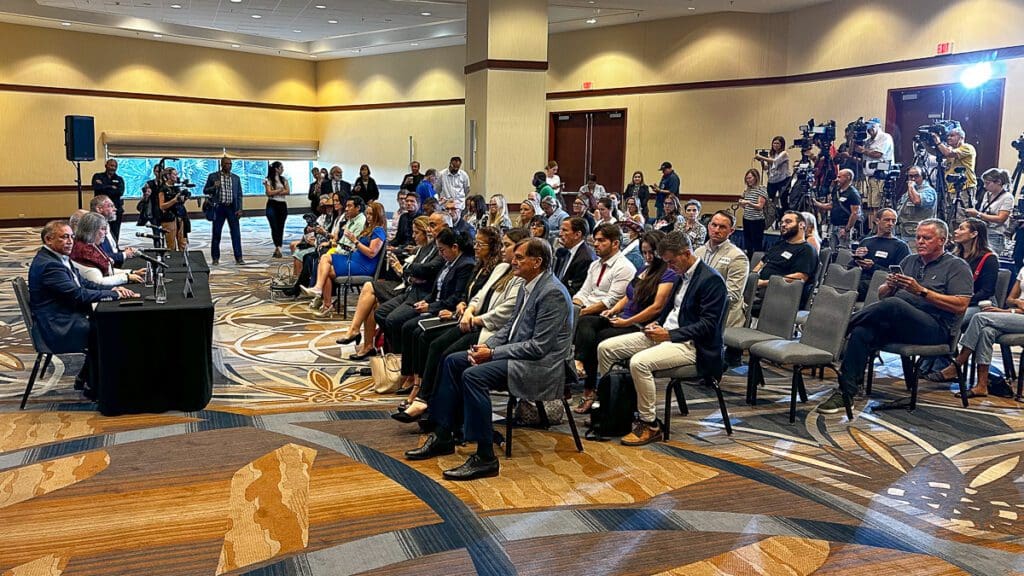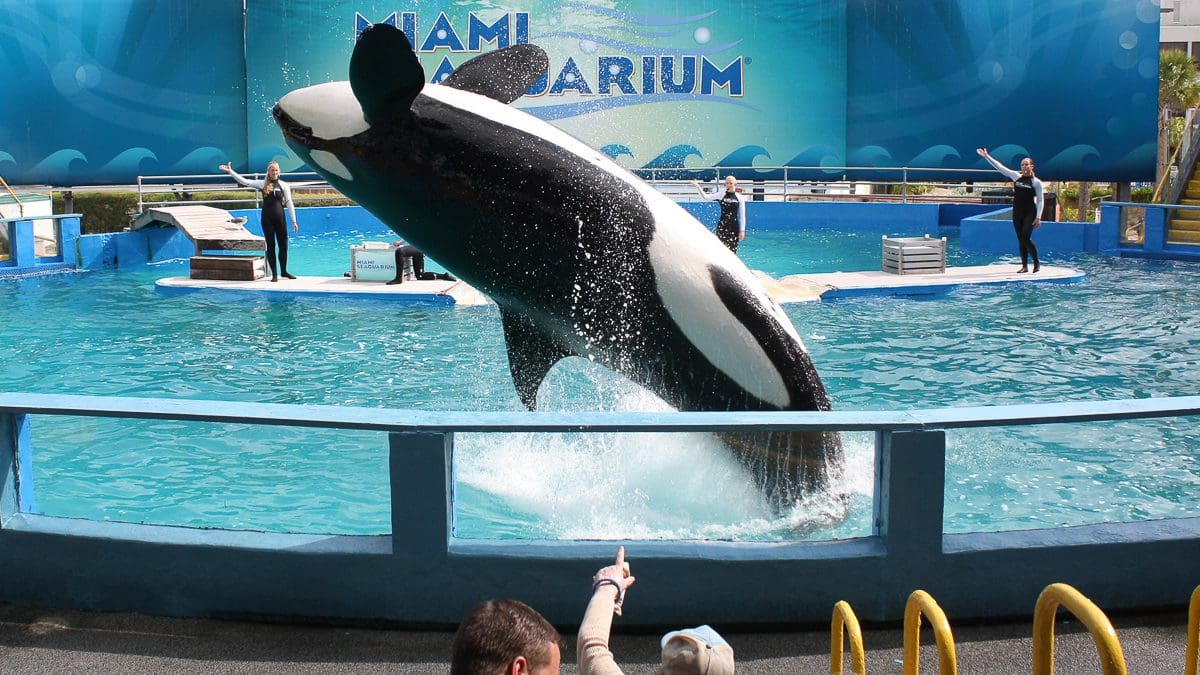More than 50 years after her capture and years of public protest, Lolita the killer whale will be leaving the Miami Seaquarium for a new life in an oceanic sanctuary in her home waters of the Pacific Northwest, officials said Thursday.
The area is where officials believe the endangered orca’s mother, nearly 100 years old, still swims.
The formal announcement featured an unlikely coalition involving the theme park’s owner, an animal rights group and an NFL owner-philanthropist, who has agreed to cover an expected $20 million to prepare, move, and support Lolita in her home.
LEARN MORE on the Anti-Social PODCAST
“I’m excited to be a part of Lolita’s journey to freedom,” Indianapolis Colts owner Jim Irsay said. “I know Lolita wants to get to free waters.”
Lolita, also known as Tokitae, was about 4 years old when she was captured in Puget Sound in summer 1970, during a time of deadly orca roundups. She spent decades performing for paying crowds before falling ill.
Last year the Miami Seaquarium announced it would no longer stage shows with her, under an agreement with federal regulators. Lolita — now 57 years old and 5,000 pounds (2,267 kilograms) — currently lives in a tank that measures 80 feet by 35 feet (24 meters by 11 meters) and is 20 feet (6 meters) deep.
Miami-Dade County Mayor Daniella Levine Cava had negotiated new lease terms with the theme park that gives officials more control over operations. She said she’d taken part in the talks to return Lolita to her native waters
“My heart is filled with joy. What a beautiful moment with so many millions around the world. Of all the things I’ve done as mayor, this is the one that really has attracted the most public interest in terms of doing the right thing.”

The orca believed to be her mother, called Ocean Sun, continues to swim free with other members of their clan — known as L pod — and is estimated to be more than 90 years old. That has given advocates of her release optimism that Tokitae might have a life in the wild.
“It’s a step toward restoring our natural environment, fixing what we’ve messed up with exploitation and development,” said Howard Garrett, president of the board of the advocacy group Orca Network, based on Washington state’s Whidbey Island. “I think she’ll be excited and relieved to be home — it’s her old neighborhood.”
The agreement among Irsay; Eduardo Albor, who heads The Dolphin Company, which owns the Seaquarium; and the Florida nonprofit Friends of Toki, co-founded by environmentalist Pritam Singh; still faces hurdles to gaining government approval.
The time frame for moving the animal could be 18 to 24 months away
The plan is to fly Lolita by cargo plane to an ocean sanctuary in the waters between Washington and Canada, where she will initially swim inside a large net while trainers and veterinarians teach her how to catch fish.
Charles Vinick, a co-founder of Friends of Lolita, said before that happens, Lolita will be trained to swim into a stretcher willingly, and later, have practice hoisting sessions, so that the transport can take place with a minimum of stress.
“She’ll swim into it many, many times so that she does it naturally so that it’s not in any way something that we’re imposing on her. Instead, she chooses,” Vinick said on the Anti-Social podcast.

The plan calls for her to be lifted into a “bathtub” for her flight to the Pacific Northwest. But because fresh water must be used to prevent corrosion to the aircraft, Lolita will be covered with prodigious amounts of moisturizer.
“Like A+D you put on a baby,” he said.
The Dolphin Company took ownership of the Seaquarium in 2021. It operates some 27 other parks and habitats in Mexico, Argentina, the Caribbean and Italy.
The legacy of the whale roundups of the 1960s and ’70s continues to haunt a distinct group of endangered, salmon-eating orcas that are known as the southern resident killer whales and spend much of their time in the waters between Washington and Canada.
At least 13 orcas died in the roundups and 45 were delivered to theme parks around the world, reducing the Puget Sound resident population by about 40% and helping cause problems with inbreeding that remain a problem today.
Today only 73 remain in the southern resident population, which comprises three familial groups called pods, according to the Center for Whale Research on Washington state’s San Juan Island. That’s just two more animals than in 1971.
Animal rights advocates including People for the Ethical Treatment of Animals have long fought for Tokitae to spend her final years back home in a controlled setting.
Activists often protest along the Rickenbacker Causeway that runs by the Seaquarium, which they’ve referred to as an “abusement park.” PETA says it doesn’t want Lolita to suffer the same fate as her partner Hugo, who died in 1980 from a brain aneurysm after ramming his head repeatedly into the tank’s walls.
Albor said Thursday that back when his company was acquiring the Seaquarium, he and his daughter visited as tourists. He said his daughter became upset while watching Lolita’s show, even as many other in the crowd were squealing in delight.
“After a few minutes, she wanted to go because it was such a small tank,” Albor said. She made him promise to do what he could to improve the orca’s life.
Albor acknowledged that public perceptions about animal exhibitions have changed, but said his company believed there was still a place for the Seaquarium and other animal themed parks.
“Very few people can fly to Alaska and pay and go and see them in the wild,” he said. But Albor said there is no need to capture killer whales because so many have now been born in captivity.
“The people of the industry need to understand how people think,” Albor said.
The Seaquarium opened in 1955 on Virginia Key east of downtown Miami. It features a variety of creatures including dolphins, sea lions, manatees, reef fish and sharks, and was the filming location for 88 episodes of the “Flipper” TV series as well as movies in the 1960s.
Support Local News. Donate today
Frieda Frisaro and Gene Johnson, Associated Press, reported the background of this story. Tony Winton contributed to this story


